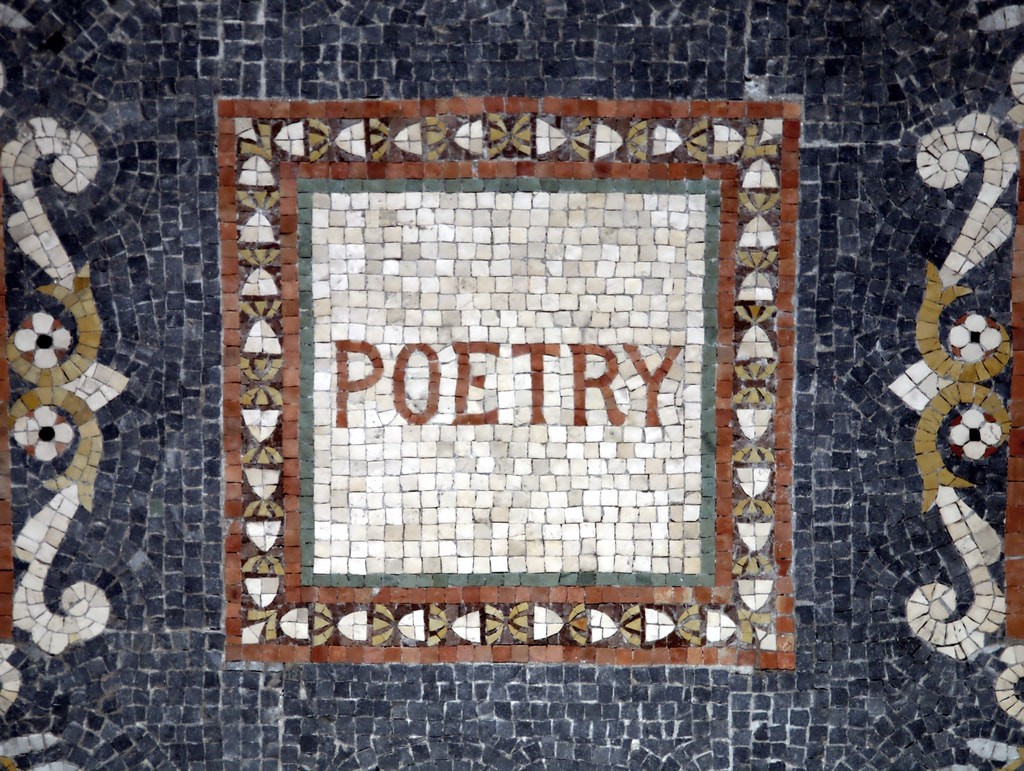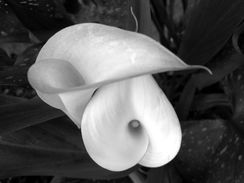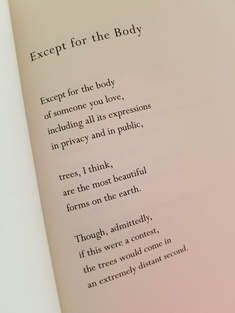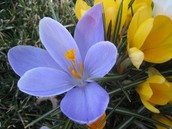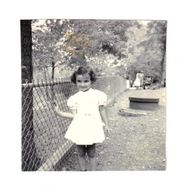 Recently I had a conversation with a non-poet friend who asked me why I write poetry or even read poetry. He had read some of my recent book, Tapping Roots, which was actually the first group of poems I ever pulled together. (I had already prompted him that I appreciated feedback.) This book is about growing up Midwesterner, and in particular, Southern Illinois., about people who have influenced my childhood and adult pilgrimage. If you don't count college, I've lived in thirteen "homes," but the place I still think of as "home" is the town where I was born, Belleville, Illinois--even though I only lived there for the first FIVE years of my life. I've been in the Chicago area for two-thirds of it. If people ask where I'm from, I say "Chicago," because of course in a way that's true. The majority of my adulthood was spent in one suburb or another. There's a certain odd pride in being "from" Chicago, but my heart, corny as that sounds, still belongs to the south of me. I digress. My friend said he could really identify with so much in my book as he had similar experiences growing up (same generation and similar economic status in the early years), so he could see why this poetry at least affected people. On the other hand, he likes to read fiction that has nothing to do with his life--mysteries with involved plots--far from his daily life and work. The implication was that his choice of fiction did not "work" the same way as my poetry seemed to do. I walked away from this conversation having multiple conversations of my own in my head. The simplest answer to his question is that I write, and particularly poetry, to CONNECT. It seems like such a transparent yet "rings-true" answer. (Yes, I know that there are poets who say they don't care if someone likes what they write.) At a high school lit fest workshop I led last week, a student asked why I write poetry. I'm pretty sure that telling eighty high schoolers that when I write, I feel a HIGH was not the wisest idea--but I blurted it out without apology. Of course, my response elicited a few giggles and snickers, but I also saw some head-nods. Is it the passion that comes first or the high? Is it the sense of connection when a few others read and like what I write, what any of us write, that propels? Doesn't the author of those mystery novels also connect with his reader, at least with the reader's need to escape or have a vicarious experience? I guess there are really two acts--the creative one and the connective one. It makes me think about which act drives my writing, any writing--the act of creation or the desire to connect. Steve Jobs has said, "Creativity is just connecting things. When you ask creative people how they did something, they feel a little guilty because they didn't really do it, they just saw something. It seemed obvious to them after a while. That's because they were able to connect experiences they've had and synthesize new things." I'm pretty sure he didn't write poetry, but his acts of invention were similarly wrapped in a need to connect, conscious or otherwise, and the outcome of his "work" and his "passion" was connection. I started mulling over other facets of my intentional life. Friendships, teaching, photography, family, emails, FB, blogging, even doctoring or walking, all things I do with more or less relish. In every single instance, connection is the key. I choose passion and connection over isolation and loneliness, and I appreciate that sometimes that happens in the presence of other humans and sometimes in the process of the solitude of writing.
0 Comments
Yesterday I felt like I was part of a BIG DEAL. I participated as a judge for a LitFest held at a far west suburban high school. Evidently, it's been a "thing" for a couple decades. Students from thirteen schools participated. Leading up to this event, I read and commented on 235 poems and then yesterday led two poetry workshops. At the Fest, students heard the keynote, Simone Elkeles, best-selling author of teen romance novels, speak about writing, her process, writing as career, the general lack of glamour, the need for revision. She had the students with her all the way. After, students had an opportunity to attend two of six workshops in diverse genres--slam poetry, personal essay, descriptive sketch, dramatic scripts, and poetry. My workshop centered on Found Poetry--centos, cut-ups or remixes, and erasures. Each of the 120 or so students who attended the poetry workshop had a chance to write a cento and an erasure poem. There was little hesitation on their parts to write or share--a marvel in itself to me after so many years in the classroom prodding reluctant learners. I provided a list of lines for composing short centos. And three passages for erasure poem experimentation--a section from Bradbury's Fahrenheit 451, a poem that appeared on Rattle after the death of Stephen Hawking, and a letter from Nelson Mandela to his daughters. My hope was that students would see ways to FRESHEN their writing. I was certainly impressed! How wonderful to have students around me who WANTED to take the risk. It might seem odd, but the most impressive part of the day was the award ceremony. You might think boring, long, drawn out, but more than 300 students gathered in the auditorium to celebrate each other and WRITING awards. Students CHOSE to attend this LitFest. chose to submit pieces of writing beforehand. Judges read and assigned awards for Honorable Mention, Third, Second, and First Place, and then lastly, the Critic's Choice award. I actually felt quite emotional thinking about the efforts behind this annual event that has taken place for a couple decades, the people who made it happen, and the excitement of individual students when names were announced and celebrated by classmates who cheered them on. My mind spun to sporting events where the cheering can be deafening. How often do we get to see this type of jubilation over WRITING. It's so often such a solitary endeavor, and often unrecognized. While judges read the top winning pieces, there was no audience chatter, no cell phone distraction, and no one exited. The audience was diverse, but the response was uniform--respectful! It seemed like a BIG DEAL! My favorite conversation of the day was with a young woman, a senior named Mary, who had been to the LitFest four years in a row. She approached me during writing time to ask my opinion about short poems. She was articulate and earnest. She told me that this year she had submitted a shorter poem uncharacteristically, and that she was beginning to think that there was some merit to "less is more." She said at times it was hard to give up passages that just weren't working, hard to let them go--the idea often attributed to Faulkner--“In writing, you must kill all your darlings” and more recently to Stephen King, who evidently wrote, “kill your darlings, kill your darlings, even when it breaks your egocentric little scribbler’s heart, kill your darlings.” I found myself so moved by her insight (something I'm only now acquired as a more "seasoned" writer, her spirited eyes, and her ease in conversing about something that was clearly a passion. It was not so much that she was asking about "short poems" in the end, but about a writer's ability to discern what's working. I think her analysis of the merit and challenge of drafting and revision required no response from me--I simply nodded vigorously. As an aside, another young woman, maybe a freshman, approached me and asked what do you do about those lines you've written in a story or a poem that you LOVE, but when you give the manuscript to someone else to read, they don't "get" that one line you think is pivotal. My response was that maybe it's her obligation to look back at it and without overexplaining it, see if she can figure out how to help the reader get there. Such thoughtful people. As a teacher, it was good to be back in a school which feels like home to me. At the awards ceremony I was pleased to see that in the process of blind judging, I had chosen Mary's poem for third place-----a "short" poem titled "Home." - - - - - - - - - - - - - - - - - - - - - - - - - - - - - - - - - - - - - - - - - - - - - - - - - - - - - - - - - - - - - - - - - - - - - - - - - - - - - - - - - - - - - - - - - - By far this erasure below by Austin Kleon received the best response from the high school crowd! Find Austin here: austinkleon.com/newspaperblackout/ 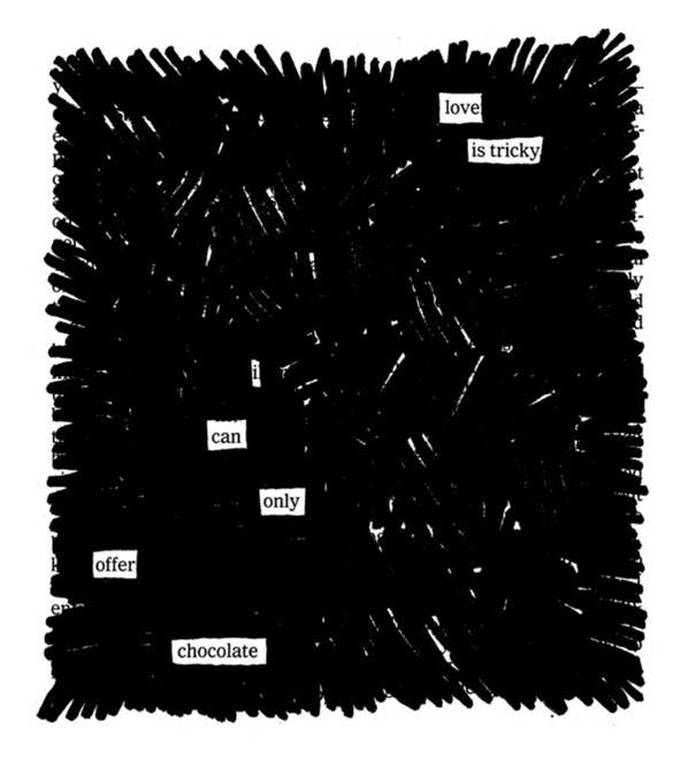 Want to tackle a cento--the uniting of lines from other poets’ writing to form a collaged poem. Here's a list to help you begin. a dead raccoon (Lauren Gordon) all its salty tears (Shannan Ballam) And whatnot (Esther Lee) check (Sean Howard) disappear without a trace (Ada Limon) emptying its anger (Kyle McCord) honey from my lips (Jeff Whitney) I am not light. I do not gallop. I'm ash (Donna Vorreyer) I cut my hair. (Anna Meister) I mistranslate myself. (Kelly Corinda) in the morning world (Robin Chapman) indelible tattoos (Terrance Hayes) into the river a stone's throw (Lisa Fishman) it is easy to imagine (Gordon Buchan) It no longer opens (Katherine Hollander) it's totally over (Kay Ryan) of air. (B Soloy) shimmering (RKR) standing (Ross Gay) Talk to me. (Christine Swanberg) the blood on the moon drips (Micah Bateman) the drowning clutch anything (Emily J. Cousins) The heart is a cloak (Ralph Hamilton) the trees (Andrew Haley) this hole in me (Larry Janowski) thunder punctuates (Steven Stamatis) time felt like a kitten (Bill Yarrow) to panic at any time (Anne Shaw) to spit or to spirit away its pain (Galway Kinnell) to the eyes (Angie Macri) we read the article with a little shake of shock (Matt Mason) What is missing (Tim Green) Where the fire enters (Roger Reeves) wings. They buzz (Thom Caraway) write like you mean it (David Ulin) You found me with my head bowed. (Matt Mauch) Want to try an erasure poem. Here are a couple texts for experimentation! letter_to_daughters_nelson_mandela.docx fahrenheit_451__ray_bradbury.docx 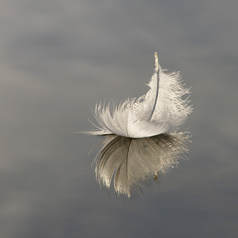 So I missed all of March. My own kind of madness. Didn't plan on my Florida vacation landing me in the hospital, but I'm hoping to be back on the blog . . . Recently I was asked to judge the poetry submissions for high school students from 13 schools who will attend a Lit Fest next Friday. Writer-judges from multiple genres received submissions, but the poetry category was flooded with submissions--235 to be exact. I read each poem and commented on each poem! Then I had to narrow down the choices and come up with aCritic's Choice. Ultimately, the two poems I chose could not have been more different--one was about a "coming out" experience layered in language about time zones and and ghosts of memories (so surprising), and the other is an outward-looking poem about Leopold II of Belgium who exploited the people of the Democratic Republic of the Congo, something I knew nothing about. (Leopold's deeds related in the poem sound quite 21st century). One poem uses a narrative style that could be something other than a poem, and the second uses short lines and consistent stanzas and looks more "poem-y." As I read this hefty pack of poems, I kept asking myself what I was looking for, what would make one poem rise above the others. In the end (and partly because of the sheer quantity of poems that I read), I went for impact. What did I remember? What drew me in and made me want to come back for another read. I've been told, even by a therapist who works with troubled children and teens, that poetry is a "thing." And something he never gave much thought to in the past. I would guess that 40% or more of the poems were written by girls (ostensibly as it was a blind reading) who wrote about the trials and disappointments of relationships. The word DEPRESSION came up in more poems than I would have liked to see. Of course, poetry is a vehicle of emotion, but it was distressing to see just how many students reflected feelings that many adults struggle with their entire lives. There were abused children, neglected children, children of divorce or alcoholics trying to recover already from things that have shaped them in the first dozen years of their lives. Sad. Disconcerting. Yes, troubling. When I read about and watch and listen to the teens who swarmed D.C. and hear the eloquence and the heart of what they have to say, I have hope. Emily Dickinson wrote: "Hope is the thing with feathers / That perches in the soul." I wonder what else there is if there is not HOPE. These young people post-Parkland, these poets writing from their chests, are the embodiment of HOPE. Their bodies, voices, silence and rage are HOPE. And yet, they have to navigate the same alleyways and secret gardens and plastic-riddled oceans as the rest of us. Words on paper can bring whole countries and peoples together. If they're not to be meaningless, then we best be studying all signs and kinds of feathered hope. Hope for transformation and light. Image: https://www.flickr.com/photos/treehouse1977/2892417805 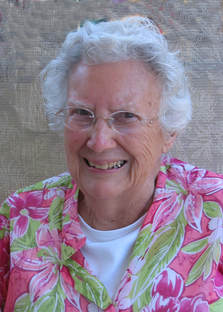 I've just started reading Atul Gawande's Being Mortal: Medicine and What Matters in the End--the book purchase prompted by a particularly long siege of pain, physical, and its companion, the psycho/emotional whiplash. Pain, mine and others, makes me consider the question of quality of life. I've a couple of friends with whom that conversation happens regularly. This post today though is prompted by the twelfth anniversary of my mother's death--February 10, 2006. My sister and I had moved into my parents' home for a couple weeks before my mother died to help my father with her care. My father would call out from the other side of the house in the night, "Girls!" and we would come running to their room to help my mother get into the bathroom. I can remember following my sister through the living room running as fast as our middle-aged legs woken from fitful sleep would take us. At one point, we, the three of us, could no longer manage to get her safely out of bed. Rarely was my mother angry with me or anyone else, but she was extremely upset with me after we had to tell her she could not get out of bed anymore and that it was "for her own good." She was someone who never gave up. We had taken from her, or cancer had, the last act of independence. Later that night, I went to her room to check on her, and I'll never forget her tone as she asked me why I was there. Thankfully, those were not the last words we exchanged. I could talk about my mother endlessly--her joie de vivre, her dignity and courage, her smile, one of the most constant and loving things I've ever known. My mother wanted to be home to die, and she wanted hospice. Our experience with hospice was not what I would have hoped for and not as much support as I would have thought there would be, but there is one woman whose "work" and compassion is "faith-restoring." Her name is Shelley Solarz. I don't recall what her title was, but if I were to give her one, it would assuredly be savior. Her task was to help my mother bathe, and later to bathe her. Who could have possibly known that what she did for my mother accounted for some of the kindest final acts of my mother's life. She understood the idea of "quality of life" in the face of dying. I celebrate my mother in my thoughts today, and I celebrate those in my life who make life worth living. Linens --For Shelly Solarz, the Bather My mother relished clean. Her druthers, fresh linens daily— thread count rising. She never missed a shower or a chance to wash a load of clothes. Likely we were the most laundered family on Bloomer Drive—pants and shirts and socks, barely worn, spun with Tide. Tags snipped. New garments agitated in the machine before they touched our skin. Guests’ towels plucked from the rod-- shower steam barely vaporized. When cancer pressed in her fierce independence fell to the floor with the towel. Then the Bather came. My mother longed to climb in the tub to shower. The Bather made this ritual happen. My mother let her-- this Bather to the Queen of Sheba. Too soon the Bather shouldered bottles of water to wash my mother’s silvered hair in bed, to sponge her failing flesh. I sat on a chair as the sun elbowed its way into the room followed the rhythm of the Bather’s hands. In reverence. A waft of cherry blossoms in winter. My mother’s body stiff, absorbed in holding on. I witnessed her soften, melt into Egyptian cotton. first published in The Blue Heron Review blueheronreview.com/2015/01/02/gail-goepfert-is-the-january-2015-blue-heron-speaks-featured-poet/ 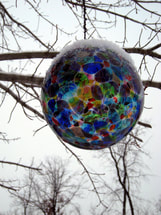 This week I ran across an interview of Mary Ruefle by Caitlin Youngquist published December 12, 2016, in The Paris Review. The article was titled, Becoming Invisible. www.theparisreview.org/blog/2016/12/12/becoming-invisible-an-interview-with-mary-ruefle/ I was actually fascinated with a number of things said. Ruefle's distinction between poetry and prose was easily spelled out. She says, "My interest in drawing lines between genres and coming up with very clear definitions for these things is very … well, if I’m being frank, I just don’t have enough time left on this earth to spend doing that. So for me, if I write something and it’s lineated, it’s poetry. If it’s not lineated, it’s prose. I read fiction, nonfiction, and poetry and I love them all. I can’t sluice them anymore than I can sluice my love of open fields and deep woods." It's such an easy distinction, one that I've no doubt many scholars of writing and poetry have spent hours discussing. And aimless endeavor. Possibly. Ruefle's tune is, why bother to spend time "naming." I love the simplicity of it. What I find more intriguing though is how she talks about her emotional relationship with prose vs. poetry. She feels so nervous, she says, when writing prose, because she KNOWS people will read it. Remarkably, she says, "If I’m writing a poem, it never occurs to me that somebody is going to read it." This she attributes to public vs. private language. It's not a distinction that has ever occurred to me. She states, "It’s different because prose is a public language and poetry is a private language, and every person on the planet who is fortunate enough to be able to speak, speaks in sentences—fragments, too, but often full sentences. The standards for public discourse are very different from poetry." She goes on to talk about her belief that poems ARE her inner life. When she writes a poem, she's writing for herself, which is how she circles back to the idea of Becoming Invisible, something she says happens as we age (particularly for women). I think it's worth quoting another section of this interview: Men don’t become invisible in the same way. There’s a difference in power between men and women, and I know I’m using an archaic formula but I do belong to another century. For the longest time, male power was posited in the accumulation of wealth or experience, and experience was something every man could have. And a woman’s power was always posited on physical attractiveness, the ability to have children. So as a man ages, he gains power, and as a woman ages, she loses it, or feels as though she does. If you go back to this paradox, which I understand people may find antiquated, you find there are still shards and shreds of it everywhere. One of my mentors began the chit-chat pre-class one evening by saying she's decided that she no longer cares about how others perceive her appearance. It's a startling statement at first, especially given the flash and shine that blinds us everywhere we go. I have to agree with Ruefle--poetry is our inner life, or at least my inner life, but unlike Ruefle, putting my poetry out there DOES make me nervous at times. And I do find it is a way NOT to be invisible in one way. Ruefle would have us believe that our inner life is what we become when the body is no more, possibly not in the sense of death but in importance. A kind of eternal life, I guess. Poetry is, poetry reveals, the inner life. Without being personal or revelatory in the sense of telling secrets. In a prose piece that appeared in Poetry Magazine, Ruefle quotes Lorca: "The poet who embarks on the creation of the poem (as I know by experience), begins with the aimless sensation of a hunter about to embark on a night hunt through the remotest of forests. Unaccountable dread stirs in his heart." www.poetryfoundation.org/poetrymagazine/articles/69815/on-fear The contrast in thought is striking. Is writing a poem a mere tinkering with and unraveling a bit of our inner life, neither frightening nor wholly public, or is it as Lorca states, the "hunt" that takes us to the "remotest of forests" stirring dread in our hearts. I think I land somewhere in between. I do have a sense of dread often about the "hunt" that begins a poem, initial dread, but as the poem unspools when I enter the words, the lines, the thinking self, the"younger" more self-conscious self, grows less fearful, and the inner self plops itself down on the page and says, "Here I am." And sometimes I am content in knowing that maybe someone will read it, like it, and maybe not. More by and about Mary Ruefle: www.poetryfoundation.org/poets/mary-ruefle www.poets.org/poetsorg/poem/hand-0 www.pshares.org/issues/spring-2011/review-selected-poems-mary-ruefle 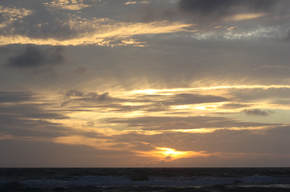 I taught seventh grade forever, it seems, and when I was allowed, I squeezed in poetry as much as possible. I can recall standing in front of some rather unenthused faces trying to convince them of the wonders of Evelyn Tooley Hunt's poem, "Mama is a Sunrise." It was one of the few poems that appeared in our anthology. In those days, we talked about the strategies of craft, but I wanted so much for them to see the simple delicacy of the choice of each word and line in this poem. As a teacher in a junior high, I did a lot of dancing, trying to infuse students' lukewarm bodies with new energy. Mama is a Sunrise When she comes slip-footing through the door, she kindles us like lump coal lighted, and we wake up glowing. She puts a spark even in Papa's eyes and turns out all our darkness. When she comes sweet-talking in the room, she warms us like grits and gravy and we rise up shining. Even at night-time Mama is a sunrise that promises tomorrow and tomorrow. In doing a bit of research, I realize that Hunt, who also wrote as Tao-Li, was famous for writing the poem "Taught Me Purple," the poem which inspired the novel The Color Purple by Alice Walker. Taught Me Purple My mother taught me purple Although she never wore it. Wash-grey was her circle, The tenement her orbit. My mother taught me golden And held me up to see it, Above the broken moldings, Beyond the filthy street. My mother reached for beauty And for its lack she died, Who knew so much of duty She could not teach me pride. According to some sources I read, she liked to write about other cultures, and clearly from the use of her pen name, Tao-Li, she took that seriously. I am reminded of the "scandal" in 2015 when Michael Derrick Hudson's poem was published in The Best American Poetry volume under the name Yi-Fen Chou. www.theguardian.com/books/2015/sep/08/white-poet-chinese-pen-name-best-american-poetry-2015 I admire Alexie's comments. You may remember that Sherman Alexie was the guest editor, and he defended Hudson's choice. Evidently Hudson had submitted the poem 40 times under his real name and had it rejected numerous times before he submitted under the pen name. Alexie stated that he certainly did not like the subterfuge, but Alexie adds, "Rereading 'The Bees, the Flowers, Jesus, Ancient Tigers, Poseidon, Adam and Eve' with the knowledge of Hudson’s true identity made it no less compelling . . . “most important, it didn’t contain any overt or covert Chinese influences or identity. I hadn’t been fooled by its ‘Chinese-ness’ because it contained nothing that I recognized as being inherently Chinese or Asian.” Alexie is a Native American and he " admitted that he had been “more amenable to the poem because I thought the author was Chinese American”, saying that there are “many examples of white nepotism inside the literary community”, and that he was “also practicing a form of nepotism. I am a brown-skinned poet who gave a better chance to another supposed brown-skinned poet because of our brownness.”" Evelyn Tooley Hunt was a white poet who took on pen name,, and published under that name, AND who reportedly influenced the writing of Alice Walker's novel, The Color Purple (and subsequently the acclaimed motion picture of the same name) about brown-skinned people. Note: Nowhere did I find a reference to the poem in researching Walker's novel. That info was a part of Hunt's bio. Clearly, Hunt did not receive the acclaim/attack/flack that Hudson did, but both situations raise some eyebrows. Why did both Hunt and Hudson feel so compelled to write using pen names with a distinctly different cultural origin? The whole question of nepotism that Alexie mentions intrigues me as well. As an associate editor of the Rhino Poetry journal, it's hard to ignore the name used to submit a group of poems. Sometimes one or more of the editors knows the poet, sometimes, the poet is "famous" by whatever standards one uses, and often an ethnicity is suggested by the name. Is an unbiased reading possible? I leave that for you to answer. Personal preferences obviously plays= a role in what we read, in what we like, but I don't know how a truly unbiased reading takes place. There's a whole mix of what makes a poem "good" and it's likely more than "good bones," to borrow the title of Maggie Smith Beehler's stellar poem and book. True "blind readings" are hard to do in our information-saturated world. I do know that I wanted my students to love poetry, to love the bones in Hunt's/Tao-Li's "Mama is a Sunrise," a poem which I can still remember pitching to twelve-year-olds twenty or more years later For sure. And truthfully, my "mama" was a sunrise. And I do know, as a reader and writer of poetry today, it's often hard to separate the "bones" from the poet. I wrote a poem this week that I submitted to Rattle's Poets Respond. It wasn't selected for publication, but I feel compelled to put this out there. There really are no words adequate to describe what transpired over so many years to so many trusting innocent girls.
With my submission: I am sickened by the testimonies of over a hundred women in the week-long victim impact sentencing hearing, by the audacity and depravity of the sports doctor, Larry Nassar, and the failure of many to respond to the young athletes in the story coming out of Michigan. I kept scrolling past the live feed on Facebook, but I could only stomach listening for short periods of time. If ever those who have been abused and come forward needed a voice and an ear like Judge Aquilina, it is now. Of course, there are those who criticized her for her actions including when she suggests that an eye-for-an-eye punishment might be fitting, but her capacity to respond to each person uniquely with empathy and encouragement was amazing, and if the survivors need to remember the sincerity of her words as they spend years recovering from Nassar's actions, they are forever archived. Poem: Poetic Justice Leave your pain here, says Judge Rosemarie Aquilina, a hint of cowboy boots under her robes. Her resolve to hear the unmanicured truth makes me want to glue myself to her side, nod with her as she telegraphs empathy and outrage to each sister in this battalion of survivor warriors. I want to witness with her as their faces weep or pale, to rock them close to my ribcage, then straighten the curve of their weighted spine-- reassure as they scratch at scabby doubts, and remove the voice’s catch, like a staple hung up in the throat, as they stand emboldened by numbers to speak the horrors of their metoo. Let their voices blister the ears of all complicit. And when I peel myself from the judge’s side, I want to let her counsel settle in my own sister-cells, Leave your pain here, and go out and do your magnificent things. 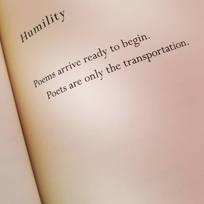 On New Year’s Day, I listened to an ON BEING podcast of a rare interview of Mary Oliver by Krista Tippett which took place on October 5, 2015 in Florida where Oliver now lives. Mary Oliver is certainly a poet I return to frequently, partly I think because of her attachment to the natural world which I share. Oliver talks briefly but in generalities about her home which was difficult at best and relates that when she was a child, she often left school to simply walk in the woods, to listen deeply. She calls it "listening convivially." This intrigues me, but I find myself doing this listening more often when I have my camera tucked in my hand, even in the coldest weather. Recently I needed a mental boost, and I found myself at the Chicago Botanic Garden; it was a cold day, and in the ninety minutes or so that I was there, maybe I passed three other people, all of whom seemed equally happy to be inhabiting this space of winter Midwest browns and silhouettes alone. I often use nature imagery in my poetry,, but it’s generally generated for me by “seeing convivially.” Oliver states that she “. . . did find the entire world in looking for something. But I got saved by poetry. And I got saved by the beauty of the world.” I can identify with that in every part of my being. In 2004 several years before I retired from teaching and found myself pursuing poetry more passionately and with much more attention to craft, I wrote these lines: Some days / I am even/ saved by / beauty. Every minute part of nature, and particularly the botanical part of nature, draws me in. One photograph, just one, that pleases me to the point of elation is enough to change the tenor of the entire day for me. I commented to a friend just this week that when I go to the Chicago Botanic Garden to I can feel even my breathing change, the tightness in my chest and shoulders loosen within minutes--I am being saved. That idea of the single serendipitous photographic moment dovetails with another part of the conversation that Oliver and Tippett had which is about poems that just come to us. So rare. Poems that we write where we never need to change a single word. Oliver says, and I agree, "But they do happen. It does — I have very rarely, maybe four or five times in my life, I’ve written a poem that I never changed. And I don’t know where it came from. But it does happen. But it happens among hundreds of poems that you’ve struggled over.” The words for me come later or else I draw upon a visual image I've recorded with the camera, and I can feel equally exhilarated when something works on the page. It's rare when there's unedited magic, but when it happens, it's glorious! Yesterday I read Oliver’s book, Felicity. A quick reading, and the "Humility" poem jumped out. I like the idea of thinking of myself as transportation, as a vehicle. An Uber driver for poems, for poetry. And one more playful poem in this collection that fits with my love of trees . . . and humans. 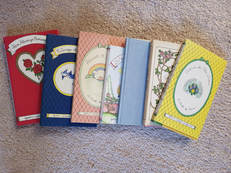 Rupi Kaur, a Punjabi-Canadian poet, came on my radar recently--reading about her, hearing about her from friends. was spurred to purchase her books just to know more about Rupi Kaur, poet phenomenon. [I still prefer the books to the free Kindle versions, and I think someone should invent “space bags” for books--a topic for another blog]. I knew that Kaur self-published her first book before a publisher, Andrews McMeel Publishing, picked up the first one, and now her second book is out. Based on an article published in The New York Times on October 5, her first book, “Milk and Honey” has sold 2.5 million copies worldwide and has been translated into 25 languages. Over the last two years, it has spent 77 weeks on The New York Times Trade Paperback Best-Seller List. Her second book, “The Sun and Her Flowers,” was released this week and is No. 2 on Amazon’s best-seller list.” At the age of 25, she has “spoken” to millions of people via Instagram where she has nearly two million followers. The same article mentions the 1000, and yes, that’s three zeroes, people who showed up for a reading that month. That’s something few poets dream of in 2018. She has been broadly criticized for two things: plagiarism and for not writing “real” poetry. According to a Buzzfeed article, August 4, 2017, “The Problem With Rupi Kaur's Poetry,” her work is similar in style particulary to Nayyirah Waheed and Warsan Shire. Some have gone so far as to post Waheed's poems side by side with Kaur's to make the point. As you might imagine, commenters differed on the issue. Her free verse form is loose and lacking in the “traditional craft” of poetry. She’s also been blasted for many choices she’s made including the similarity of her writing to others, capitalizing on social media, classifying her writing as “the story of a young brown woman” to gain traction, and being “disingenuous” by exploiting the stories of other women who have experienced the personal traumas and emotions about which she writes. She defends herself on all points. I guess I admire her oomph. She moves boldly in the world. Maybe someday she’ll look back and question her choices, but almost instant fame is fraught with regret or missteps. What she says speaks equally to the anxieties of Golden Globe red-carpeters that flash on the screenfor their 15 seconds of fame and to the 12-year-old that sat in my classroom, downcast, and then later cut herself in the school bathroom or at home at night. From the sun and her flowers i reduced my body to aesthetics forgot the work it did to keep me alive with every beat and breath declared it a grand failure for not looking like theirs searched everywhere for a miracle foolish enough to not realize I was already living in one Her writing spins me back to the time when, at her age, I was collecting books and copying sayings in notebooks that sparked a bit of truth for me. Odd choices, maybe, but Kahlil Gibran’s The Prophet comes to mind. It still sits on my shelf, and my mother asked for a passage from it to be read at her memorial service. I have another collection of books I will not part with—small books of “poems” with just a few lines on a page written by Joan Walsh Anglund. I could go back to any one of her books and be moved by what on first glance may seem insubstantial. And yet . . . “The Past writes with indelible ink. We cannot erase her story", or "In War . . . or Peace, . . . the wrens still build their nests," both poems from her book Crocus in the Snow. Undoubtedly there were those who did not call those "poems." Have others said the same before and maybe more expansively and been subsequently recognized? Surely, but I find these word droplets still sing for me. I will posit that is the imagery that works for me best I have a sense that the same will be true for readers of Rupi Kaur years down the road, her words giving voice to the long-ignored emotions and thoughts of women about body and status in the world. Another theme of hers is empowerment. Is the time in which Kaur writes ripe for what she has to say? Yes. Is what she writes and posts raw? Yes. Is it resonating with people of all color who line up at public venues to hear her read (as many as 1000 at a time)? Yes. We choose our “heroes,” the “voices” we carry with us, and if Kaur’s poetic voice speaks to many, I find no need to be a critic. Right now is "her time", and it's a time for this kind of vibrancy on this planet! Links to more info about Rupi Kaur PBS interview The Guardian Last night I attended a wake for the son of a poet friend. She now has two sons who have preceded her in death, both sons dying unexpectedly. It's hard to imagine that kind of grief. And still I grieve for her, her husband, the daughter that lives on in the midst of the loss. I sat, studying the faces of those there, wondering how they came to know this young man gone. From life to loss. Emily Dickinson's poem speaks. The lines in that last stanza. The great hope, I guess. That letting go. "As freezing persons recollect the snow-- First chill, then stupor, then the letting go". After Great Pain, A Formal Feeling Comes By Emily Dickinson After great pain a formal feeling comes-- The nerves sit ceremonious like tombs; The stiff Heart questions--was it He that bore? And yesterday--or centuries before? The feet, mechanical, go round A wooden way Of ground, or air, or ought, Regardless grown, A quartz contentment, like a stone. This is the hour of lead Remembered if outlived, As freezing persons recollect the snow-- First chill, then stupor, then the letting go. Source: https://www.poetryfoundation.org/poems/47651/after-great-pain-a-formal-feeling-comes-372 I have another friend, Marcia Pradzinski, who lost a son quite a few years ago. She's written a book, keenly titled, Left Behind, that speaks to her grief, of her loss. Solace Marcia J. Pradzinski I look for it in the honeyed plumpness of the golden comforter, the cold morning bathroom tiles, the rain of water warm then cool that bathes my senses awake. I look for it in the fire and fragrance of my son’s hair as we begin our morning struggle, in the earthy tang of coffee and the soft cork of the bulletin board littered with reminders. I look for it in the burgundy sofa that sighs with my weight as I listen for the rumble of the yellow school bus, and later in the newspaper-reading faces on the train, the conductor’s song of stops, the garlic-scented accents of students their struggle twisting their way into English as I twist my way in and out of the day. And when it comes, it comes not in days away, not in evenings out. But as the day ebbs with dishes stacked in the sink, clothes to be washed, lists to be made it calls me softly into my son’s room invites me to sit at the edge of his bed and stroke his soft curls. The rhythms of his breath the ticking clock my breath weld the scene and hold us in an eggshell of space. www.yourdailypoem.com/listpoem.jsp?poem_id=918 May we all be held in that eggshell of space when grief muscles in. |
Archives
March 2021
The Revival Tour
Poet Bloggers 2018 Kelli Russell Agodon- http://ofkells.blogspot.com/ Donna Vorreyer – https://djvorreyer.wordpress.com Beth Adams – http://www.cassandrapages.com Sandra Beasley – http://sbeasley.blogspot.com Carolee Bennett – https://gooduniversenextdoor.com/ Mary Biddinger – wordcage.blogspot.com/ Andrea Blythe – http://www.andreablythe.com Dave Bonta – http://vianegativa.us Jim Brock -- http://picturesthatgotsmall.blogspot.com James Brush http://coyotemercury.com Angela T Carr https://angelatcarr.wordpress.com/ Grant Clauser http://www.uniambic.com Kevin Connor – https://ordinaryaveragethoughts.wordpress.com/ Jared Conti – http://www.theoracularbeard.com Jill Crammond https://jillypoet.wordpress.com/ Jenelle D’Alessandro – http://www.borderandgreetme.com Laura E. Davis – http://www.dearouterspace.com/ Kate Debolt – http://www.katedebolt.net/blog/ Heather Derr-Smith – ferhext.com/ Risa Denenberg – https://risadenenberg.weebly.com/blog Cynthia Schwartzberg Edlow http://cschwartzbergedlow.blogspot.com Andrew Eickstead http://www.unleashingthewordhoard.com Lou Faber – https://anoldwriter.com Jeannine Hall Gailey – webbish6.com Gail Goepfert –In the Mix gailgoepfert..com/blog Erica Goss http://ericagoss.com Sarah Kain Gutowski – mimsyandoutgrabe.blogspot.com Erin Hollowell – http://www.beingpoetry.net . T Trish Hopkinson https://trishhopkinson.com/ Jennifer Hudgens https://jenniferelhudgens.wordpress.com Catherine Hume : https://catherinehume.wordpress.com/ Crystal Ignatowski – http://somehiatus.tumblr.com/ Charles Jensen – https://charles-jensen.com/kinemapoetics-blog/ JJS https://thisembodiedcondition.wordpress.com Jill McCabe Johnson http://jillmccabejohnson.com/blog-chanson-daventure.html Collin Kelley http://www.collinkelley.blogspot.com Kathleen Kirk https://kathleenkirkpoetry.blogspot.com/ Anita Olivia Koester https://www.forkandpage.com/ Lakshmi – thiswinterheart.tumblr.com Courtney LeBlanc – wordperv.com Lorena P Matejowsky https://nothingbutblueskies.wordpress.com/ Marilyn McCabe O Write.MarilynonaRoll.wordpress.com Ann Michael – www.annemichael.wordpress.com Amy Miller – http://writers-island.blogspot.com/ James Moore – jameswmoore.wordpress.com LouAnn Sheperd Muhm – https://louannmuhm.com/ January Gill O’Neill – http://poetmom.blogspot.com Shawnte Orion http://batteredhive.blogspot.com/ Ren Powell http://renpowell.com/blog/ Bethany Reid http://www.bethanyareid.com/ Susan Rich – http://thealchemistskitchen.blogspot.com . Lee Ann Roripaugh https://runningbrush.wordpress.com/ Sarah Russell – https://sarahrussellpoetry.net Martha Silano : http://bluepositive.blogspot.com/ Kim Bailey Spradlin – www.kimbaileydeal.net Bonnie Staiger –https://bonniestaiger.com/ Rosemary Starace https://thresholdview.wordpress.com/ Hannah Stephenson – http://thestorialist.com Stephanie Lane Sutton athenasleepsin.wordpress.com Christine Swint – https://balancedonedge.blog/ Dylan Tweney – http://dylan20.tumblr.com/ Michael Allyn Wells: http://stickpoetsuperhero.blogspot.com/ Allyson Whipple http://allysonmwhipple.com |
